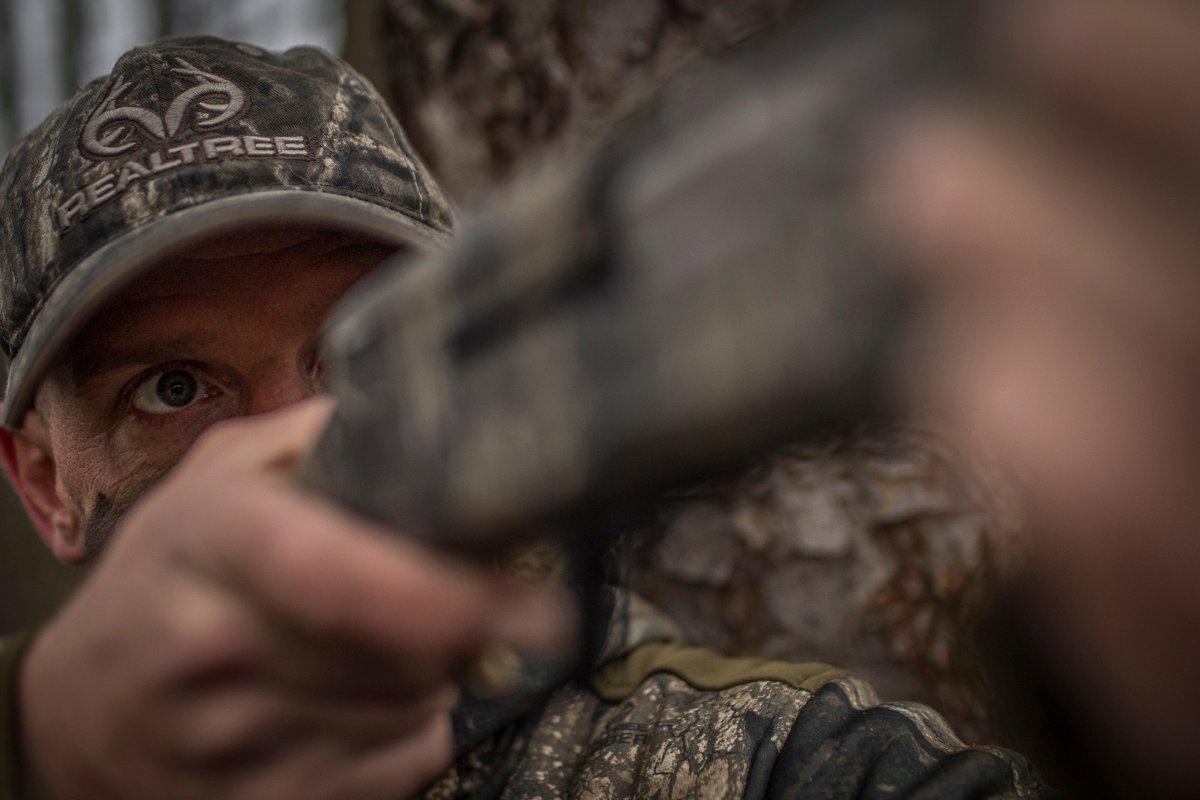You won't find many easy, comfortable shots in the marsh or timber
Shooting swift-flying ducks becomes much easier when you master the basics: incoming targets, crossers, overhead birds, and quartering angles. However, even round after round of skeet or sporting clays won't teach you how to troubleshoot some of waterfowling's unique — sometimes even laughable — shooting challenges.
Experience is the best instructor, of course, but most of us need some remedial help now and then. Consider these tips the next time you're forced to overcome tricky duck shooting situations.
Your Buddy's Blind
Ever go to a friend's duck club and discover that his blind, albeit concealing and well-built, allows about one foot of space for you to stand and shoot? And then notice that you have to stand to see over the brush and bump your head every time the shot is called? Yeah, me, too. Basically, you have to bring your gun up and over the front of the blind before getting on target, which can cost you precious seconds and mess up your sight picture.
Solution: As soon as you settle into the blind, practice the stand, pre-mount, mount, and swing within the pesky confines of the blind. Try to commit it to muscle memory so you can pull it off quickly and in one fluid motion when birds are over the blocks.
The Mud Dilemma
Freelance hunters end up in some wild ducky areas, which often means they're ankle-deep or even knee-deep in marsh muck. That prohibits you from shifting your feet or even turning and swinging naturally while shooting. And one off-balance round can leave you on your butt in the wet stuff.
Solution: First, try to find the best shooting platform available. Even a swath of relatively dry ground or a muskrat hut will allow more freedom. Otherwise, realize your dilemma and compensate for it while shooting. Try to pick incoming, overhead, or straight-ahead shots rather than severe left or right angles. Really focus on keeping your gun moving and following through.
The Rocker
I used to love my skiff. It's big and even has stake holes, through which I can shove closet rods into the muck to keep everything stable. Still, depending on the depth of the water and muck, the skiff often ends up rocking back and forth, especially when my retriever is involved. That makes shooting tricky — especially during overhead shots, when it's easy to lose your balance.
Solution: Much like shooting while knee-deep in muck, you must compensate for wobbly platforms while standing and shooting. Focus first on balance and stability, making sure your weight is evenly distributed. Keep your knees slightly bent. After you're stable, focus on the shot.
Layout Blind or Boat
Field blinds and layout boats give hunters unbelievable concealment in cover-challenged environments, such as cut ag fields or open water. But the problem with shooting while lying on your back is… well, you're lying on your back. When the shot is called, you must execute a swift situp and bring your gun to the target. Also, remember that your lower body is locked, so you can't move your feet or shift left or right. For right-handed shooters, that's not a big deal for shots from about 9 to 1 o'clock. But you'll quickly realize your movement limitations when you try to swing to 2 or 3 o'clock on a streaking bluebill. (Spoiler alert: It doesn't work.)
Solution: First, position your blind and decoys so you'll encounter more of those makeable 9 to 1 o'clock shots. Second, practice sitting up and mounting your gun on swinging on targets while seated. Strive to memorize that motion. Last, realize your limitations, and don't get caught up in trying poke-and-hope shots 90 degrees to your right (assuming you're right-handed). If everything is working that day, you'll get plenty of easier opportunities.
(Don't Miss: 5 Types of Public Duck Openers)
Click here for more Realtree waterfowl hunting content. And check us out on Facebook.








